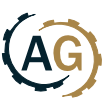Another Gear, connecting you to your purpose and strength



Approach
The mission of Another Gear is to connect people to their purpose and strengths so that they can be their best when it matters most.
I am especially passionate about helping people who feel they have hit a plateau. It may be someone who’s later in their career trying to write their next chapter, or someone just starting out who isn’t really sure which path to take. It could be a person or team who just isn’t performing the way they know they can.
I am especially passionate about helping people who feel they have hit a plateau. It may be someone who’s later in their career trying to write their next chapter, or someone just starting out who isn’t really sure which path to take. It could be a person or team who just isn’t performing the way they know they can.
Where My Philosophy Comes From
- My own experience. I had my share of ups and downs during a 35-year career in Corporate America. Some things worked and others didn’t, but even when they didn’t I usually learned something.
- The experience of others. As a Human Resources professional for most of my career, I had the opportunity to work with hundreds, if not thousands, of employees at all levels. I learned a lot from their successes and failures too.
- Business school and business experience. The more I’ve learned about business, especially about strategic planning, the more I’ve come to believe that the same processes that make businesses successful can be applied to personal success.
- Continuous learning. I’ve read over 200 books and counting in my study of the success literature. Sometimes there’s a new idea. More often it’s a new twist on something tried and true. But it’s always valuable to see how the experts view things.
“Everything that is important can’t be measured, and everything that can be measured isn’t important”
Balance is Key
While it’s tempting to talk in absolutes, most ideas are more nuanced than that. I believe there’s a yin and yang to the way most things work. Over the course of my work life, I’ve developed a point of view that tries to strike the right balance on several key concepts:
Curation vs Creation
I used to be on a search for the right gurus. Whose model or system would I subscribe to or immerse myself in to be the best I could be? I wanted to find the right thought leaders for wellness, money, personal growth, etc. and master their teachings. Even better, I wanted to become a guru. I wanted to create the next big thing.
After seeing others publish my book for the ninth or tenth time, I realized that truly original ideas are few and far between. And by committing to one diet, one exercise plan, one budgeting system, one leadership style, what would I be missing? A lot.
Instead, I have become dedicated to continuously studying the personal development space and connecting the dots. I look both for what’s new, and for the fundamental themes that repeat themselves again and again and try to weave ideas together in ways that are useful. I curate the best thinking and try to create practical ways to pull it together.
Old School vs New Schoool
Technology and globalization have changed the way business works, and there is no shortage of thinking on how that is impacting the next generation of workers. While it would be foolish not to embrace new and better ways to do things, there are some fundamentally human practices at risk of becoming a lost art. As Artificial Intelligence becomes capable of doing more, it is human skills like empathy and relationship building that will differentiate those who thrive in the future.
Art vs Science
Business loves data and the almighty “Business Case”. Data is useful to a point, but sometimes it can be misleading. It can often be shaped to make whatever case is needed. Even worse, sometimes we take a pass on doing important work that is just common sense because we can’t make a business case. As Einstein put it, “Everything that is important can’t be measured, and everything that can be measured isn’t important”
Simplicity vs Complexity
Generally, I’m a fan of keeping things as simple as possible. When I have a process boiled down to its essence, I like to challenge myself to see if there are still steps that can be removed. That said, oversimplification can be a real danger. We live in a world of limited attention spans and 40-character sound-bites. Sometimes its just more complicated than that. The trick is to keep it simple, not simplistic.
Simplicity vs Complexity
Generally, I’m a fan of keeping things as simple as possible. When I have a process boiled down to its essence, I like to challenge myself to see if there are still steps that can be removed. That said, oversimplification can be a real danger. We live in a world of limited attention spans and 40-character sound-bites. Sometimes its just more complicated than that. The trick is to keep it simple, not simplistic.
Assessment vs Reflection
I believe there’s an over-reliance on assessment tools in business. Maybe it goes back to Corporate America’s preference for a business case; something that feels objective. While there is a place for these tools, my experience is that more often it comes down to asking smart questions of yourself and your stakeholders. Its really about wanting to get to the truth. Are you being honest with yourself about what matters most to you and where you are in relation to that? Do you care enough about your stakeholders to really want to know what they think?
Individual vs Organization
Human Beings are fundamentally self-serving creatures. The idea that there is “no “I” in team” is a naïve one, as is an organizational strategy that relies on individuals sacrificing themselves for the team. This is especially true in today’s business world, where loyalty to employees is a thing of the past and employees know it.
The goal should be for everyone to be successful. A successful organization is made up of successful teams, which are made up of successful individuals. But it starts with the individual. The organizations that win are the ones that provide environments where individuals can learn and grow and meet their personal goals.
Work Life vs Personal Life
I don’t believe in work-life balance. “Live to work or work to live”. is a false choice. Great work can only happen in the context of a great life. If you’re not taking care of your body, mind, relationships and spirit, you won’t be able to perform at your best. And work doesn’t have to be a necessary evil. It can be one of the things that brings true meaning to life.
Striving vs Savoring
Stress is not the enemy. To achieve something special requires extraordinary effort. We need to challenge ourselves. On the other hand, unrelenting stress leads to burnout. That’s why proper sleep and time off are so important. While the clinical terms are “stress” and “recovery”, I like to think of it as “striving” and “savoring”. Chasing big goals are what life is all about, but so are weekends, vacations and cheat meals!
Process vs Outcome
When I was in Corporate America, I frequently heard how activity didn’t matter. It’s all about results! And, of course, results do matter. Unfortunately, they are often out of our control. While losing ten pounds may be the goal, it’s an outcome we can’t control. What we can control is how we exercise and what and how much we eat. That’s why great coaches, like Nick Saban of Alabama are more obsessed with the process than they are with wins. They believe that if the team plays the right way—something they can control—then wins will follow. The same applies to performance of any kind.
